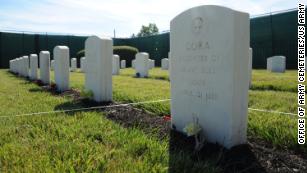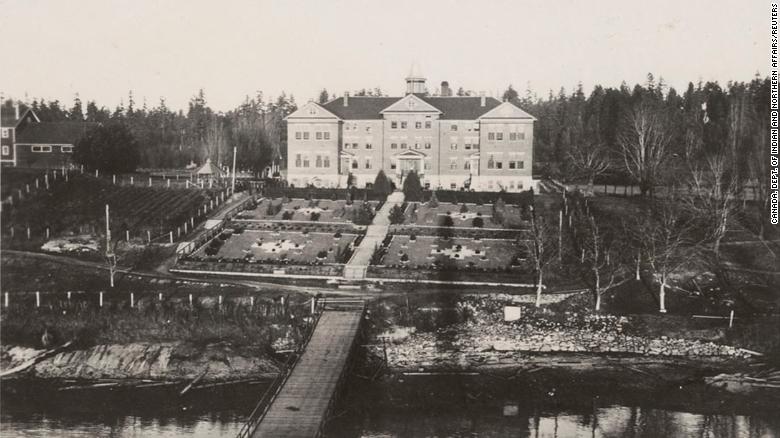More unmarked graves discovered in British Columbia at a former indigenous residential school known as 'Canada's Alcatraz'
More than 160 undocumented and unmarked graves were discovered on Penelakut Island, B.C.
Kuper Island Residential School was open for nearly 100 years on the remote island, and was referred to as Alcatraz because its location made escape nearly impossible.
By Paula Newton, CNN
Tue July 13, 2021
(CNN)The Penelakut Tribe in British Columbia announced Monday that it had found more than 160 "undocumented and unmarked' graves in the province's Southern Gulf Islands, once home to the Kuper Island Residential School.
The latest grim discovery follows other similar findings in British Columbia as well as in the province of Saskatchewan.
Hundreds of unmarked graves have been discovered in recent weeks and dozens of investigations, many using ground-penetrating radar, continue on the grounds of former residential schools across the country.
"It is impossible to get over acts of genocide and human rights violations. Healing is an ongoing process, and sometimes it goes well, and sometimes we lose more people because the burden is too great. We are at another point in time where we must face the trauma because of these acts of genocide. Each time we do, it is possible to heal a little more," the Penelakut Tribe said in a statement posted by the neighboring Cowichan Tribes on its Facebook page.

Their children vanished at an indigenous boarding school. This tribe is bringing them home after 140 years
The Penelakut Tribe confirmed the contents of the statement to CNN, but has not yet responded to a request for comment.
In a 1997 documentary posted on YouTube and produced with funding from the federal government, survivors of the Kuper Industrial School describe it as "Canada's Alcatraz."
Survivors from the island school say some children died after taking to the water in whatever they could find to try to escape the abuse they suffered at the school.
The statement, on behalf of Penelakut Tribe Chief Joan Brown and council members, did not say whether ground-penetrating radar was used to uncover the unmarked graves or whether they contained the remains of children or adults.

The Kuper Island Residential School in British Columbia is pictured
in this June 19, 1941, archive photo.
"We understand that many of our brothers and sisters from our neighboring communities attended the Kuper Island Industrial School. We also recognize with a tremendous amount of grief and loss, that too many did not return home," the tribe said in the statement.
The Penelakut Tribe announced to neighboring tribes and communities that it would be holding "healing sessions" and a march for the children "lost" in the coming weeks. The school operated from the late 19th century until it was closed in 1975.
The Canadian government has said that it would fund more investigations into unmarked graves in indigenous communities across the country, but it has also faced criticism for not doing so sooner, as outlined by the Truth and Reconciliation Commission in its 2015 report.
"My heart breaks for the Penelakut Tribe and for all indigenous communities across Canada. I recognize these findings only deepen the pain that families, survivors and all indigenous peoples and communities are already feeling and that they reaffirm a truth that they have long known. To members of the Penelakut Tribe, we are here for you," said Prime Minister Justin Trudeau during a virtual news conference in Ottawa on Tuesday.
The shocking abuse as detailed by victims has been well documented for decades but this latest discovery deepens a national reckoning on unmarked graves and why the deaths were undocumented for so long.
The Tk'emlúps te Secwépemc First Nation in B.C., which recently disclosed that it had found at least 215 unmarked graves on the grounds of the former Kamloops Indian Residential School, said it would announce more details about its findings Thursday.
The Truth and Reconciliation Commission reported that more than 4,000 indigenous children in residential schools died either from neglect or abuse.
No comments:
Post a Comment